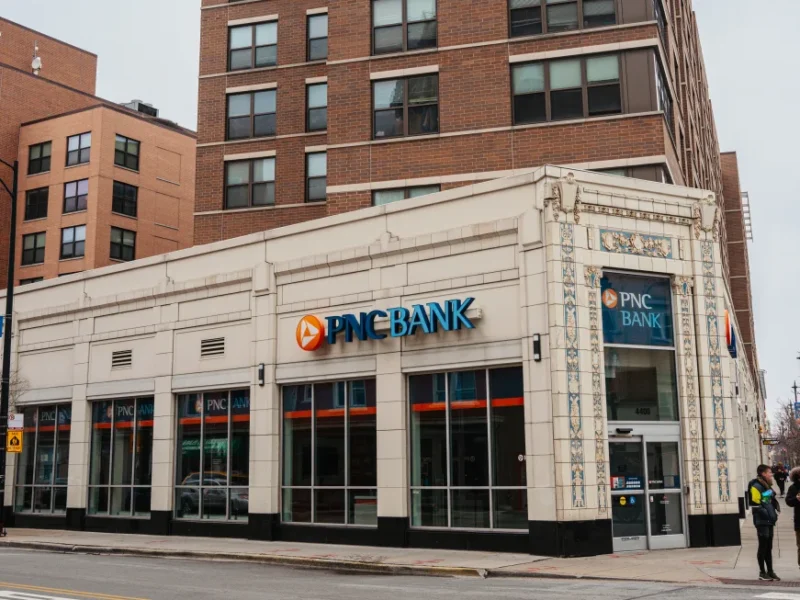Despite overcoming a crisis in 2023, regional banks in America continue to face challenges. The SPDR S&P Regional Banking exchange-traded fund has dropped approximately 13% this year. Shares of New York Community Bank, Bank OZK, and Webster Financial have seen significant declines, with drops of 71%, 16%, and 11% respectively.
During the first quarter, regional banks reported significant losses in profits. PNC Financial’s net income fell by about 22% compared to the previous year, while M&T Bank and US Bancorp saw drops of 25% and 24% respectively. Citizens Financial experienced a substantial 38% decline.
These banks also witnessed decreases in net interest income, a crucial measure of profitability for financial institutions. PNC expects its net interest income to decline by 4% to 5% in 2024 compared to last year, while US Bancorp revised its guidance downward. Citizens Financial has “broadly reaffirmed” its expectations for a net interest income decline of 6% to 9%.
Regional lenders have been particularly affected by elevated interest rates, which result in higher interest payments on deposits. While this pressure also impacts large banks, their size has enabled them to weather the storm more effectively. Additionally, after the collapses of Silicon Valley Bank, Signature Bank, and First Republic Bank last year, big banks benefited as customers shifted cash from smaller lenders to larger institutions.
The challenges are expected to persist, with persistent inflation, a strong job market, and a robust economy causing investors to delay expectations for Federal Reserve rate cuts. Fed Chair Jerome Powell stated on Tuesday that rate cuts are likely to occur later than previously anticipated. Market projections now suggest that the first rate cut may not happen until September.
Powell emphasized the need to allow restrictive policies more time to work and to be guided by evolving data and outlooks. In March, the central bank terminated the Bank Term Funding Program, which was established last year to assist regional banks in meeting liquidity needs during banking turmoil. Sheila Bair, former chair of the Federal Deposit Insurance Corporation, suggested reinstating another program, the transaction account guarantee, which was in place during the financial crisis.
Bair expressed concern about certain regional banks and highlighted the risk of another shock to uninsured deposits in the event of a bank failure, identifying it as a significant challenge facing regional banks currently.
Tesla plans to seek shareholder approval to reinstate Elon Musk’s multibillion-dollar compensation package, which was invalidated by a judge.
Tesla intends to seek approval from its shareholders to vote on the 2018 compensation package that propelled CEO Elon Musk into the ranks of the world’s wealthiest individuals, a package that was invalidated by a Delaware judge earlier this year, according to reporting by my colleague Chris Isidore.
The original pay package granted Musk options to purchase 303 million split-adjusted shares of Tesla at $23.34 per share. When the Delaware court annulled the pay package in January, its value stood at $51 billion. However, a subsequent decline in Tesla’s share price has reduced its value to $40.7 billion. In the initial 2018 vote, 73% of Tesla shares not held by Musk or his brother at the time supported the package. Tesla’s proxy statement, filed with the Securities and Exchange Commission on Wednesday, outlined plans for the upcoming vote, stating that ratification would “restore Tesla’s stockholder democracy.”
Delaware Chancery Court Chancellor Kathaleen McCormick’s ruling in January stated that Musk and the Tesla board “failed to meet their burden” in proving the fairness of the compensation plan to shareholders.
In its filing on Wednesday, Tesla contended that the pay package was equitable to shareholders, citing the significant increase in the value of their shares since 2018.
A recent report suggests that climate change will lead to decreased wealth for individuals.
A recently published study indicates that the world’s economy could suffer a significant blow due to climate change-related events such as record-breaking heatwaves, severe floods, and intense wildfires. These events, exacerbated by climate change, may result in an approximate 19% reduction in global income over the next 26 years, as per the findings published on Wednesday.
The impact won’t be limited to governments and corporations alone, according to my colleague Samantha Delouya’s report. The United Nations warns that despite existing climate policies and goals, the world is on track for nearly 3 degrees Celsius of global warming in the next century, potentially burdening individuals with the economic fallout.
The study, published in the journal Nature, suggests that even with intensified efforts by governments to combat the crisis, short-term financial challenges are inevitable. Researchers from the Potsdam Institute of Climate Impact Research, including Maximilian Kotz and Leonie Wenz, conveyed to CNN via email that these impacts are consistent across various future emission scenarios until 2049. However, they suggest that immediate actions to mitigate climate change could alleviate some of the long-term losses.
Noah Diffenbaugh, a professor and environmental researcher at Stanford University, highlighted that the economic consequences of climate change would manifest in various ways. Besides the costly repairs associated with extreme weather events, elevated temperatures could also affect agriculture, labor productivity, and even cognitive abilities in certain cases.











